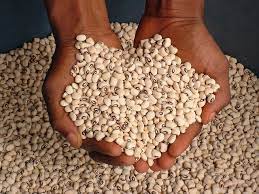USAID has said that the commercialisation of Pod Borer Resistant (PBR) Cowpea represents tremendous progress in applying innovative approaches to advance Nigerian food security.
Dr Faith B. Tarr, General Development Officer and Biotechnology Specialist at the USAID Bureau for Resilience and Food Security Center for Agriculture-Led Growth said, “We celebrate the completion of a critical stage within a continuous, iterative process by which new food security innovations are developed, disseminated, adopted, and used in order to enhance prosperity, resilience, and nutrition”.
PBR Cowpea is a new beans variety developed by local scientists at the Institute of Agricultural Research (IAR) at Ahmadu Bello University to resist the notorious insect pest Maruca Vitrata that causes up to 80 per cent yield loses on the farm.
“This achievement advances Nigeria’s capacity to harness science, technology and innovation to sustainably improve livelihoods and nutrition. It also demonstrates that research investments can support innovation systems to deliver a pipeline of new tools and approaches that improve agriculture, food security, and resilience in the face of complex, dynamic challenges that Nigeria may face in the future, she added.
According to her, with this nutritious crop, farmers will be able to significantly reduce pesticide use and harvest more yields to ably support Government’s economic and food security goal.
For this innovation to ultimately yield maximum impact, we must not only supply new technologies, but also strengthen the enabling system of organizations, relationships, and processes that enable their dissemination and stewardship.
The organization commended AATF and the local scientists at IAR who led development of this innovative product, as well as the local entrepreneurs who will make the seed accessible to farmers, to the many farmers who provided feedback throughout the breeding and testing process for supporting Nigeria’s trailblazing efforts with PBR Cowpea. “Nigerians have realized more equitable access to the full tool kit of modern agriculture ― expanding the options available to innovators and farmers to address local food security and development priorities,” she added.



















































































